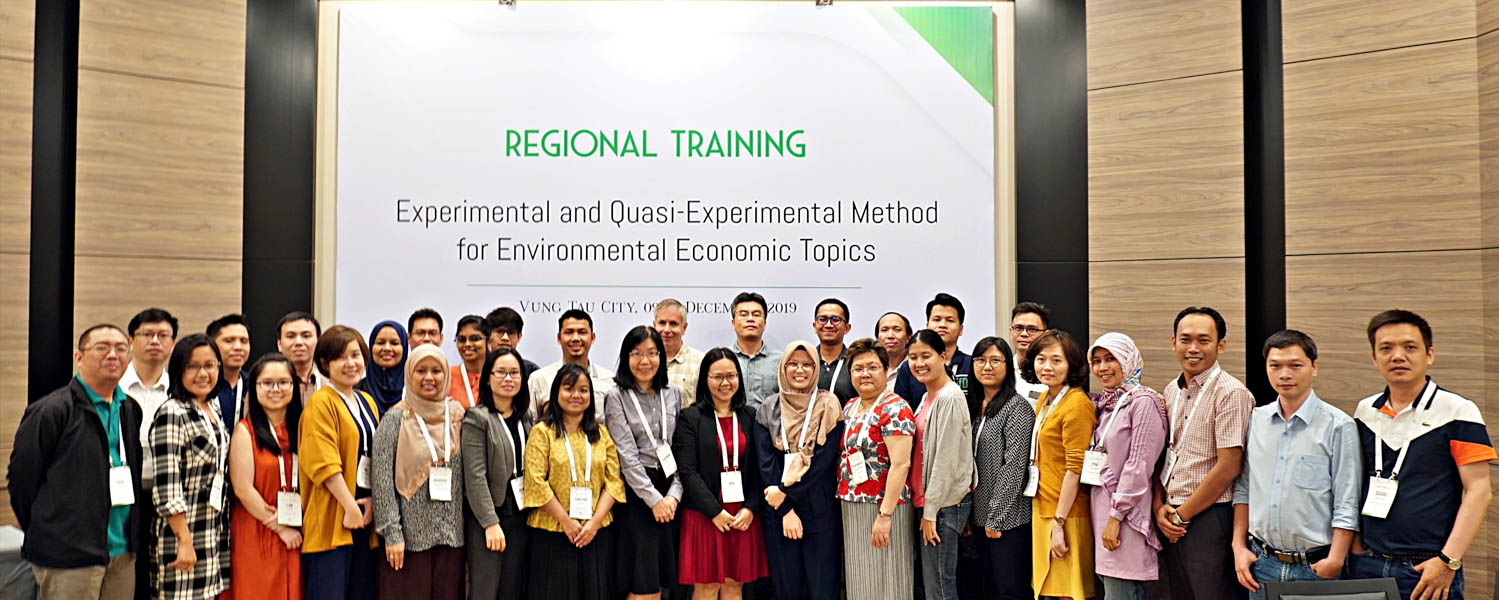
The Institute of Southeast Asian Environmental Economics (UEH) organizes a training course on modern research methods
The Institute of Economy and Environment Partnership for Southeast Asia has provided a training course for leading experts on trained methods.
Prof. James Murphy of the University of Alaska - Anchorage shared an experimental approach that is widely used in many modern studies today. Participants in the course experience practical experiments and listen to an overview of related research methods used to solve economic and environmental problems. In addition, participants also discussed the design and implementation of similar experiments themselves. Topics covered include research on public goods, auctions, general resources, negotiation, and donation options.
In contrast with the experiment, the data used in most empirical studies of natural resources and environment are observational. Observation data was not generated during a controlled test deployment; Therefore, understanding the relationship between variables requires advanced statistical tools. Assoc. Corbett Grainger from the University of Wisconsin - Madison shared the experimental pseudo-method, using applied econometrics to make causal inferences based on these observational data. At the same time, going into applied analysis, the focus of recent studies shows the suitability of the method to analyze policy impacts, which are often of interest to environmental economists.
At the end of the course, many students highly appreciated the content and teaching methods. Although there have been many studies in the field of economics, experimental methods and pseudo-experiments are still entirely new to many researchers in Southeast Asia. This course has provided an opportunity for research project proposals to contribute more to the field of natural resources and environmental economics in countries in the region.
The course was conducted by the Economy and Environment Partnership for Southeast Asia (EEPSEA) and the Center for Environment for Development (EfD-Vietnam) of Ho Chi Minh City University of Economics. Ho Chi Minh co-organized. The Swedish International Development Cooperation Agency (Sida) provides funding.
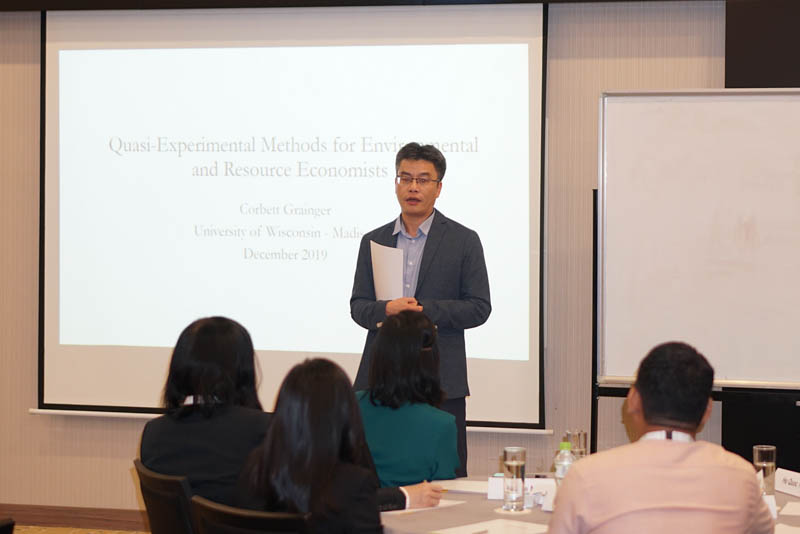
Dr. Pham Khanh Nam, Director of The Economy and Environment Partnership for Southeast Asia (EEPSEA) delivered the opening speech.
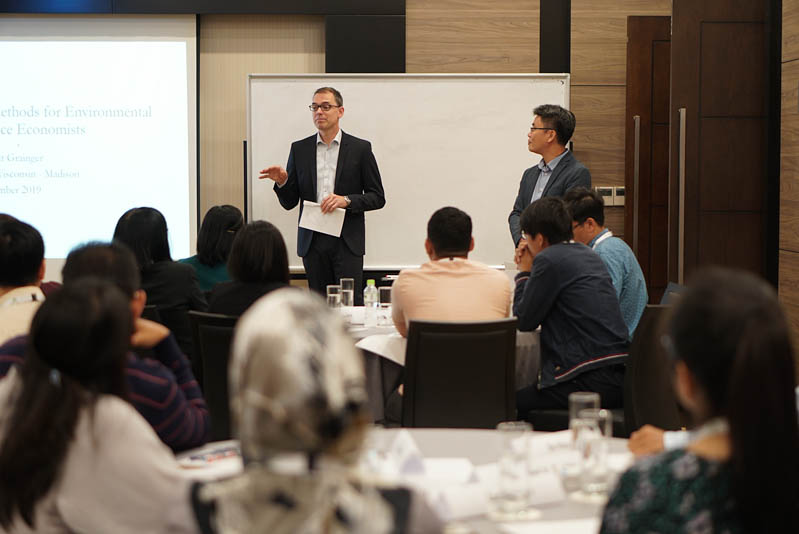
Dr. Eren Zink, Research Advisor at the Swedish Embassy in Bangkok, shared about Sida's process of evaluating and funding EEPSEA's activities
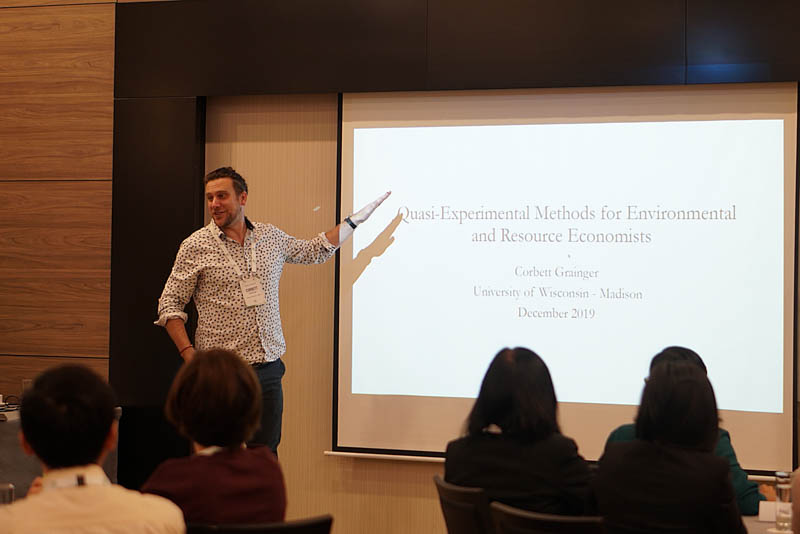
Assoc. Corbett Grainger trains experimental pseudo-methods in the study of Environmental Economics and Resources
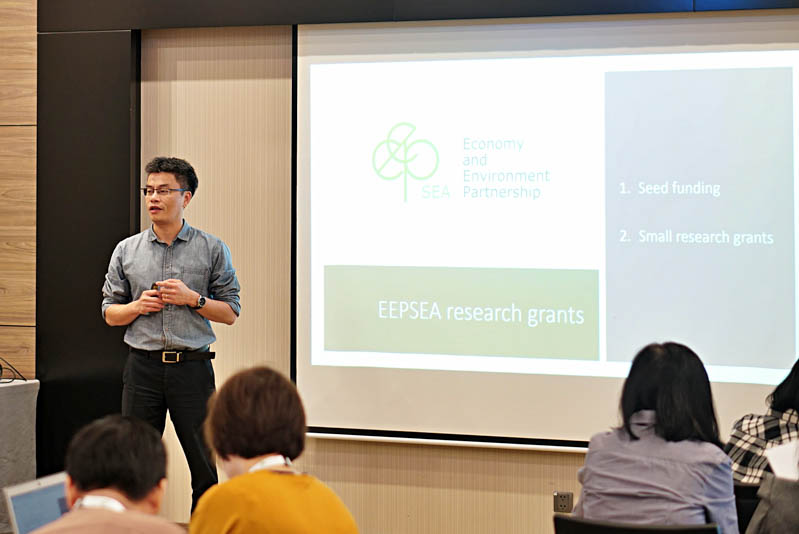
Dr. Pham Khanh Nam introduces funding sources for Southeast Asian environmental economists
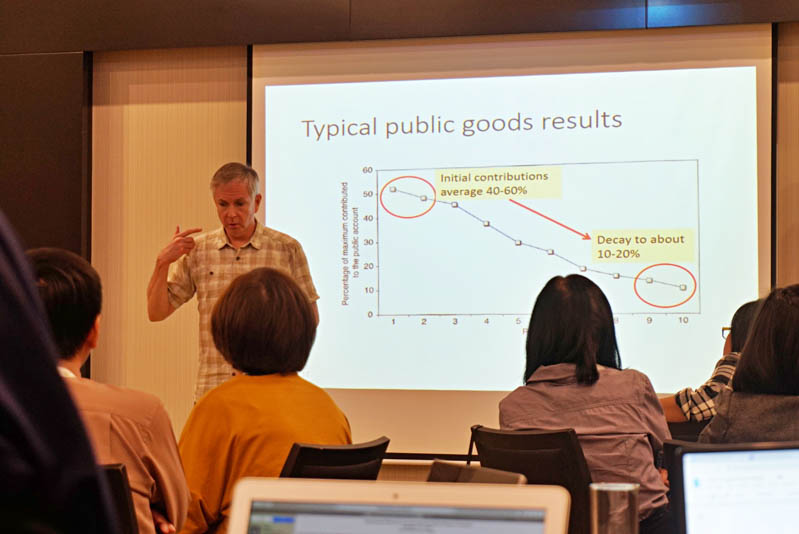
Prof. James Murphy trains experimental methods in environmental and resource economics research
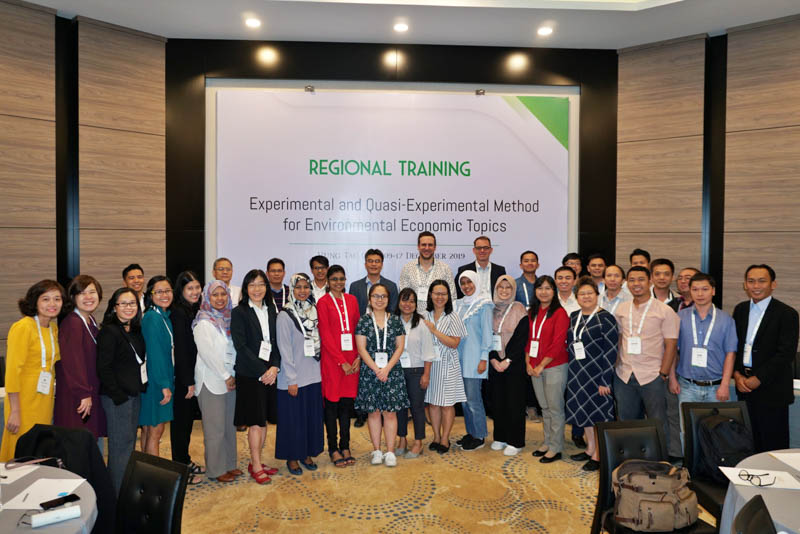
Students take photos with Assoc. Corbett Grainger and Ph.D. Eren Zink
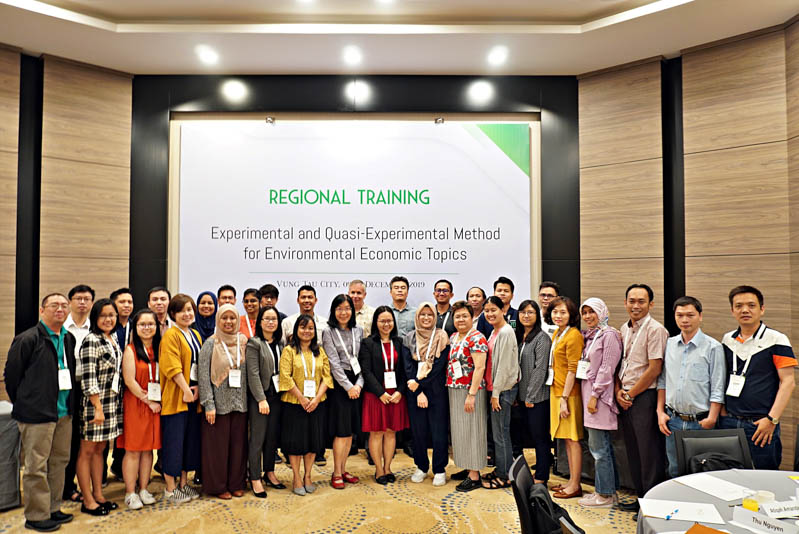
Students take photos with Prof. James Murphy
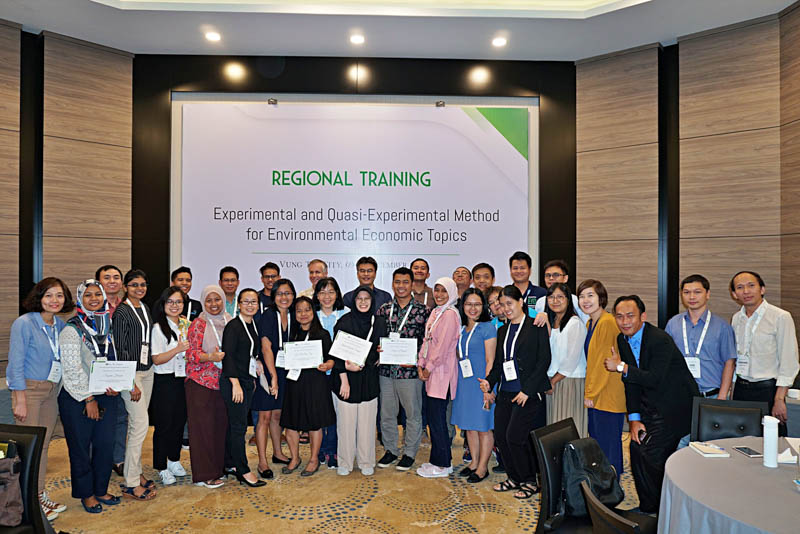
Students take group photo
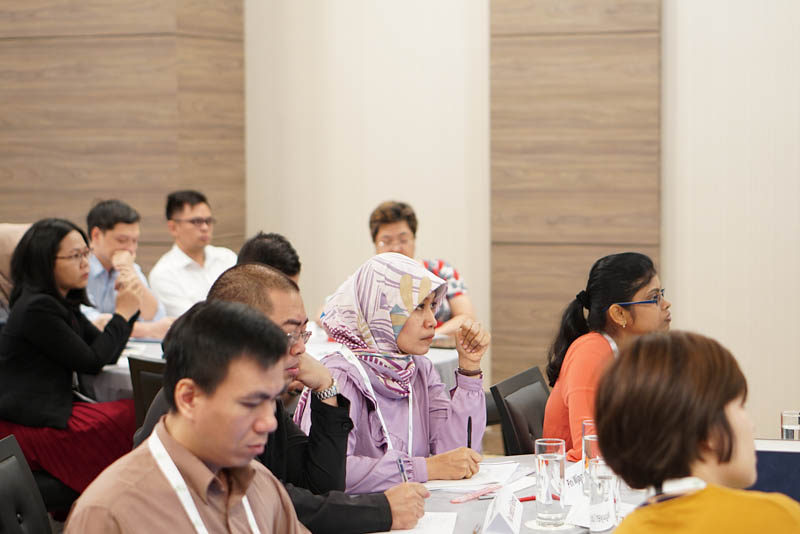
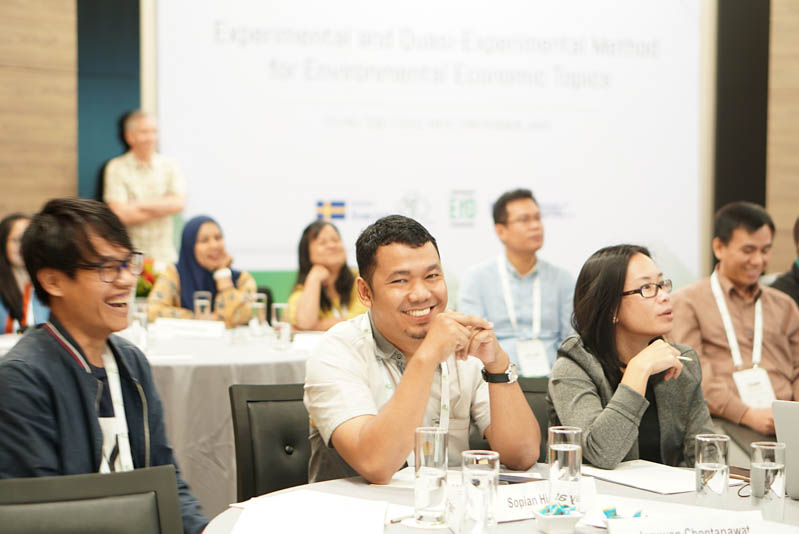
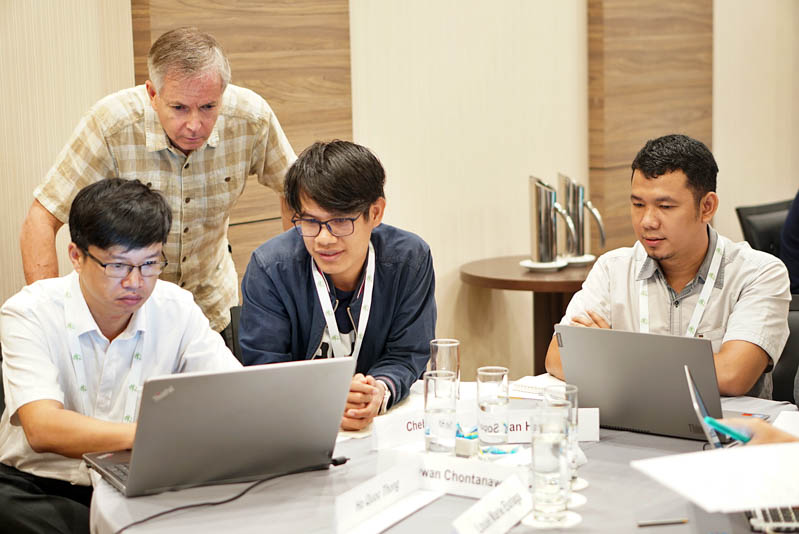
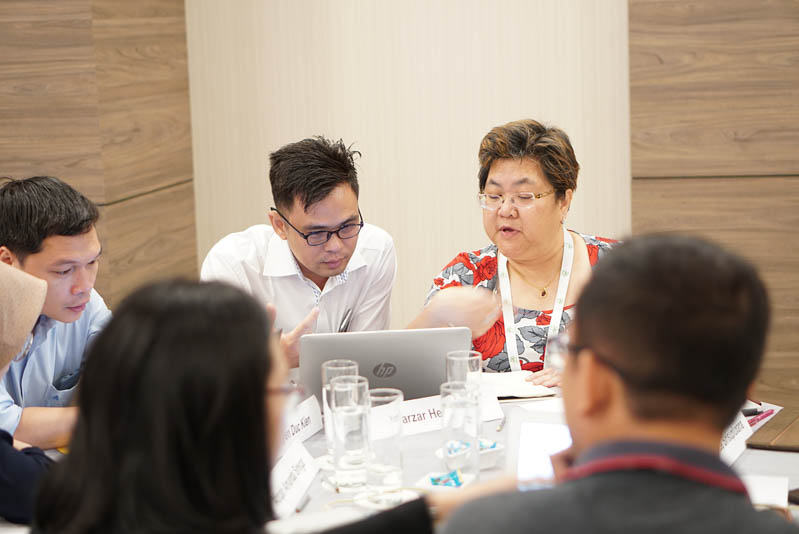
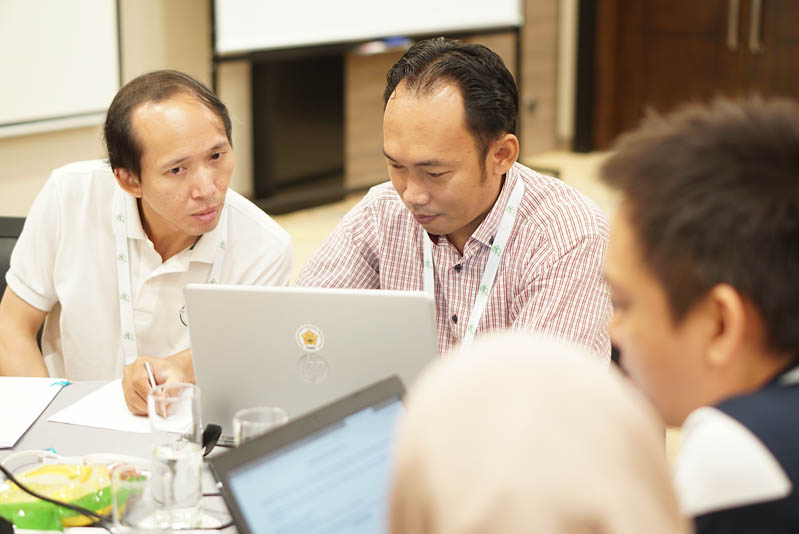
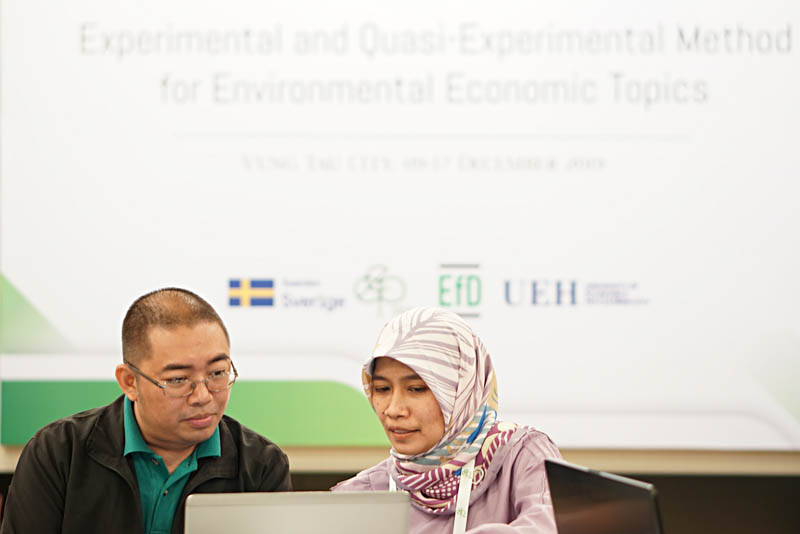
Students participate in experiments, discussions and research design
Sources: Southeast Asia Institute of Environmental Economics, Department of Communications and Public Relations.





